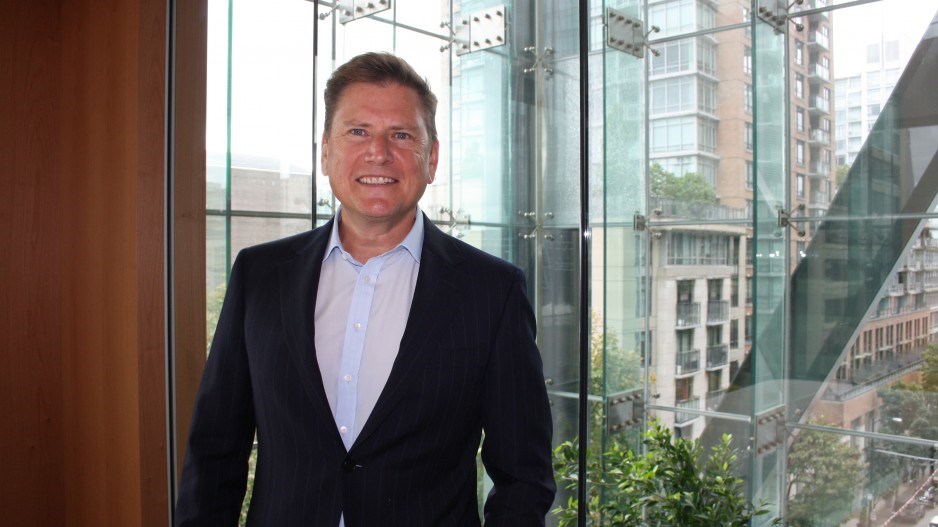When top executives buy shares in their own companies, investors usually view those actions as votes of confidence in future corporate success.
This leads companies to tout their executives’ stock purchases in order to lure additional investment – even if the raw ownership percentage is minimal.
Such was the case on March 20, when Telus Corp. (TSX:T) announced that CEO Darren Entwistle had bought 150,400 additional common shares, bringing his total stock ownership to 556,904 shares.
That holding, however, is less than four one-hundredths of one per cent of Telus, which recently had a market capitalization in excess of $39.2 billion.
“Investing significantly in Telus shares is consistent with Mr. Entwistle's past practice, aligning his interests with those of Telus' close to 1.2 million shareholders,” Telus said in its release.
The company noted that, between 2009 and 2015, Entwistle took his salary in shares – something that compensation consultants say is not very common.
Entwistle’s total compensation during that time, however, included large bonuses and options-based awards.
Compensation Governance Partners managing partner Christopher Chen told BIV that there is no hard-and-fast stock ownership rule for top executives.
“A lot of organizations that are publicly traded have share-ownership guidelines, where they specify that the CEO and members of the management team must own a multiple of their annual compensation in shares,” he said.
Usually, that multiple is three-to-five times compensation, and new top executives are usually given about five years to accumulate that holding, he said.
Many companies allow executives to count restricted share units, or shares that have yet to vest, in the calculation of their stake in their companies. They are also able to include shares that are provided to them as part of their overall compensation package, he said.
Telus’ released its 2023 management information circular on March 31. It noted that Entwistle was required to have seven times his $1,600,000 base salary – not his total compensation – in shares.
The circular noted that at the time he held $10,514,085 worth of shares, which would have worked out to be only about 6.6 times his annual base salary – less than what he was required to own.
Telus acknowledged that Entwistle owned fewer shares than he should have, and said, "based on updated shareholdings and share price movement in early 2023, Darren has met his ownership requirement."
Entwistle’s updated total of 556,904 shares at April 3’s $26.97 closing share price were worth $15,019,700.90, which was less than his 16,465,760 in total 2022 compensation.
Chen said corporate boards at large public companies usually expect the number of shares owned by their top executives to be a higher multiple of their salaries, or compensation, than do boards at smaller public companies.
Telus is B.C.'s largest company by revenue.
“Darren’s holding, although a very small percentage [of Telus], is likely still a meaningful stake and portion of his net worth, and is still motivational with him being CEO,” said Thane Stenner, senior portfolio manager and senior wealth adviser at CG Wealth Management Canada and USA.
Stenner’s practice is centred on managing portfolios for ultra-high-net-worth individuals, and helping them diversify assets.
“Public companies with founders or co-founders who took them public, like Chip Wilson at Lululemon (Athletica Inc.[Nasdaq:LULU,]) could, and should, be expected to be higher-percentage owners of the public float,” Stenner told BIV.
Indeed, on March 16, KITS Eyecare Inc. (TSX:KITS) put out a press release and filed an early-warning report saying that its CEO and co-founder, Roger Hardy, had upped his stake in the e-commerce venture to 32.15 per cent, from 28.89 per cent, when KITS went public in January 2021.
With KITS’ market capitalization at the time being $114.3 million, Hardy’s stake was worth more than $33 million.
While that is a much higher stake in the company than Entwistle has at Telus, Hardy is diversified, given that he told BIV last year that his real estate holdings were worth more than $100 million.
Hardy Capital has stakes in dozens of companies, including LD Vision Group Inc.
The only shareholder at KITS with a larger stake than Hardy, according to the company’s most recent management circular, in May 2022, was the similarly named LD Group Holdings Inc., which counts many of the same principals as LD Vision Group.
Another local corporate founder with a large stake in his company is Aritzia Inc.'s (TSX:ATZ) executive chair Brian Hill.
Hill in November reduced his stake in the company to 18.7 per cent, from 20 per cent, by selling $70 million worth of shares.
The company said at the time that it was "for estate planning, investment diversification and charitable giving purposes."
At Lululemon, Wilson remains the company's largest individual shareholder even though he is not an active executive at the company and is not on its board.
According to the company's most recent management information circular, in April 2022, Wilson held 10,955,225 shares, or 8.6 per cent of the company. Using April 3’s Lululemon share price of US$367.40, that would work out to be more than US$4.02 billion, which is still about 8.6 per cent of the company.
Lululemon’s CEO, Calvin McDonald, last April owned or had the right to acquire a total of 181,772 shares, which as of April 3 would be worth US$66,783,032.80. Given Lululemon’s market capitalization of about US$46.72 billion, that works out to be about 1.4 per cent of the company.
McDonald's total compensation in 2021 was US$13,265,455, including a US$1,250,000 base salary. His holding is therefore more than 53 times that year's base salary.
Companies often release executives' stock holdings in corporate filings in April, so new information for Lululemon should be available soon.


